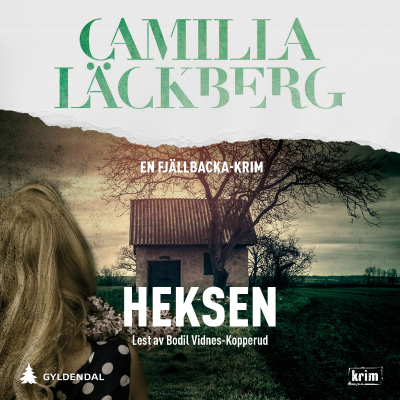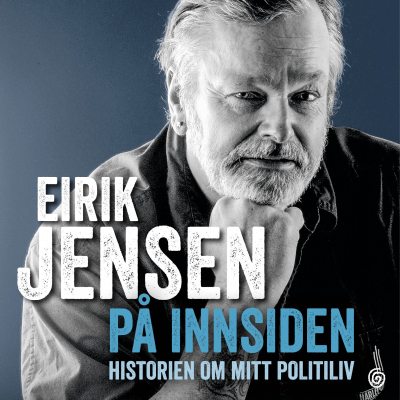
C.O.B. Tuesday
Podkast av Veriten
C.O.B. Tuesday is a weekly one-hour talk show that serves as a knowledge pipeline for the energy industry and the energy curious. We host honest, timely, conversations with people we believe can improve the discussion, can provide new perspectives, can share unique insights into key energy issues, and can discuss inventive, pragmatic solutions for a stronger energy future. Produced by Veriten.
Prøv gratis i 7 dager
99,00 kr / Måned etter prøveperioden.Avslutt når som helst.
Alle episoder
5 EpisoderToday we were delighted to welcome Jack Belcher and Sarah Venuto of Cornerstone Government Affairs, along with Brook Papau, CEO of Orennia, for a discussion focused on the energy implications of the One Big Beautiful Bill (OBBB). Jack, a Principal at Cornerstone, has over 30 years of experience in energy and energy policy, having previously served as Manager of Regulatory Affairs and Policy at Shell and Staff Director for the U.S. House Subcommittee on Energy and Mineral Resources. Sarah, Principal and Counsel, joined Cornerstone in 2023 following roles as Director of the Office of External Affairs at the Federal Energy Regulatory Commission, Senior Advisor and Chief Counsel to Senator Joe Manchin, and Democratic Staff Director for the Senate Energy and Natural Resources Committee. Brook founded Orennia in 2021 and previously served as Managing Director at RS Energy Group (now Enverus). Between Jack, Sarah, and Brook, we had a wealth of insight and expertise that fueled a thoughtful and detailed conversation. In our discussion, we explore the implications of the OBBB for U.S. energy policy, including a shift in emphasis toward fossil fuels (particularly natural gas), along with a renewed focus on reliability and dispatchability. Jack shares his perspective on the “winners” (oil and gas, nuclear, geothermal, and hydrogen) and “losers” (wind and solar), major changes to clean energy tax credits, and the pullback of unobligated funds from federal agencies reclaiming money originally authorized under the IRA. We discuss the introduction of Foreign Entity of Concern (FEOC) restrictions across tax credits, intended to accelerate the reshoring of critical supply chains, and how the current energy tax credit framework increasingly aligns with Trump Administration energy priorities. Brook shares implications for the U.S. grid and power mix, including anticipated delayed retirements of natural gas facilities, a near-term rush to install solar, wind, and storage while tax credits remain in place, severe supply chain constraints for new thermal generation, and growing post-2028 uncertainty as AI-driven demand growth threatens to outpace renewable power additions for the first time. Sarah describes the evolving U.S. energy policy landscape, with regulatory loosening across federal agencies, reduced enforcement capacity due to staffing cuts, and a return to traditional energy provisions, including reinstated onshore and offshore lease sales, lowered royalty rates, renewed support for drilling in Alaska, and accelerated tax treatment for intangible drilling costs. We examine the continued bipartisan support for nuclear, growing cross-party momentum for reshoring advanced manufacturing and critical supply chains, the inflation implications of phasing out tax credits, the partial permitting reforms included in the bill, the importance of codifying reforms into law to avoid policy reversals, early industry reaction to the bill, and much more. As mentioned, a few slides from Orennia’s latest report on the OBBB are linked here [https://mcusercontent.com/59b28891a6a2c8ca6e839d5d2/files/7e818711-a01e-12e0-d364-ecfb280e3c7b/The_Final_One_Big_Beautiful_Bill.pdf]. It was an engaging and insightful conversation, and we greatly appreciate Jack, Sarah, and Brook for sharing their perspectives. Mike Bradley opened the conversation by highlighting broader equity market performance, recent OPEC+ developments, and President Trump’s surprising proposal to implement a copper import tariff. On the broader equity market front, markets have mostly moved sideways this week after posting all-time highs last week on passage of the One Big Beautiful Bill. Trumpatility is beginning to resurface ahead of President Trump’s July 9th tariff deadline. Upcoming CPI and PPI reports, due next week, could significantly influence whether the Fed moves to cut interest rates at the July 30th FOMC Meeting. Additionally, Q2 reporting begins
We are very pleased to share a special Fourth of July edition of COBT. Earlier in the week, we had the opportunity to tour the Lone Star Flight Museum [https://lonestarflight.org] (LSFM) and to sit down with Jerry Scott, LSFM’s Chief Operating Officer and Director of Flight Operations. The museum draws visitors from all over the world and features flying historical aircraft, many of them iconic military planes. Jerry was named COO in June 2024 and has 40 years of experience in aviation sales as well as people, project, and logistics management. He previously served as a volunteer at LSFM for 15 years and as a crew chief and plane captain for several of the museum’s aircraft. For our conversation, we sat right next to a B-25, the same type of aircraft flown by Jimmy Doolittle and his squadron. This particular plane has been meticulously restored to the exact standards of the Doolittle Raiders’ aircraft, making it an especially unique setting for our discussion. We were thrilled to visit with Jerry and to get to spend time with the team at the museum. Special thanks to LSFM’s CEO Anna Hawley for all her help in particular. In our conversation, we explore the parallels between modern military missions and World War II operations, the extraordinary bravery of the Doolittle Raiders, the unique similarity of the Doolittle mission to the recent US strikes on Iran, and Jerry’s personal journey and passion for aviation. We discuss LSFM’s mission to honor veterans and preserve their stories for future generations through a living, flying museum, the pilot training progression required to fly historic aircraft, the museum’s move from Galveston to Ellington Field after Hurricane Ike, and the critical role of volunteers in keeping the operations running. Jerry shares insights into the museum’s reach, welcoming over 100,000 visitors annually, its rotating aircraft exhibits, and its broader community impact through educational programs and events. We reflect on Jimmy Doolittle’s legacy, the spirit of innovation and sacrifice that defines American aviation history, and the museum’s vision to inspire future leaders. As mentioned, the “Thirty Seconds Over Tokyo” film is available on Amazon Prime (linked here). A huge thank you to Jerry and the team at LSFM for their support in making today’s episode possible. We highly recommend planning a trip to the museum to see the aircraft up close! To start the show, Mike Bradley highlighted a handful of key events that influenced markets in 1H25 including President Trump’s import tariffs (Day of Liberation), Trump’s One Big Beautiful Budget Bill (OBBB), the Israeli-Iranian War/U.S. strike on Iranian nuclear facilities and OPEC’s substantial/surprising accelerated oil output hikes. For our Canadian friends, we hope you had a fantastic Canada Day on Tuesday. For everyone celebrating the Fourth today, we hope you have a great day filled with food, family, friends, and fun. God bless you, and God Bless America. Have a wonderful Independence Day!
Today we had the very exciting and interesting opportunity to visit with Jim Grech, President and CEO of Peabody. Jim was appointed as CEO in June 2021 and brings more than 30 years of experience across the coal and natural resources space. His career includes leadership roles as CEO of Wolverine Fuels, President of Nexus Gas Transmission, EVP and CCO of CONSOL Energy, and Vice President of DTE Energy. Peabody, founded in 1883, is one of the leading coal producers in the U.S., operating 17 surface and underground mines across the U.S. and Australia. We were thrilled to hear Jim’s perspective on the evolving role of coal in both the U.S. and global energy markets. In our conversation, Jim shares background on his decision to join Peabody during a period of financial and market uncertainty and outlines the company’s progress in recent years, including repayment of $1.5B in secured debt, reinstatement of a dividend and stock buyback program, and reinvestment in U.S. and Australian assets. We discuss how to motivate a coal workforce amid global anti-coal sentiment, Peabody’s asset footprint, the strategic importance of the Powder River Basin (PRB) and the untapped potential to export PRB coal to Asia, the advantages of U.S. coal relative to coal in other parts of the world, and the vast abundance of U.S. coal, with U.S. coal reserves containing more energy than any other nation holds in any single energy resource. We explore the distinctions between thermal and metallurgical coal, global coal demand and outlook, the longevity of coal infrastructure with new plants expected to operate for 30-50 years, the improved environmental footprint of modern coal plants and outdated misconceptions, coal’s role in poverty reduction and economic growth in developing nations, and the push to codify U.S. regulatory changes into legislation for permanence beyond changing administrations. Jim shares his perspective on coal’s role in grid stability and delivering lower, more stable electricity prices, state-level legislative trends supporting reliability requirements for coal plants, the current status and underutilization of the U.S. coal fleet, and renewed interest from industrial users and datacenters seeking long-term, dependable power sources. We examine investor trends including the emerging investor focus on international coal markets, international market dynamics and growth opportunities across metallurgical and thermal coal, and much more. We close by asking Jim for his top takeaway, and he highlights the importance of being open-minded about coal’s net benefits, particularly regarding its role in global energy access, industrial development, and improving standards of living. It was our pleasure to host Jim and we greatly enjoyed the discussion. Mike Bradley opened the discussion by noting that bond, commodity and equity markets have largely roundtripped to their June 12th closing levels (prior to the Israeli strike on Iran). From a bond market perspective, the 10-year bond yield (~4.3%) has essentially roundtripped and traders are now focused on upcoming economic data. In crude markets, WTI spiked to a high of ~$78.50/bbl on Monday following the U.S. strike over the weekend of Iranian nuclear sites, but has since pulled back to ~$65/bbl amid reports of a “proposed” Iranian/Israeli ceasefire, which is ~$3/bbl lower than June 12th price levels and ~$5/bbl above June trading lows. From an Energy equity standpoint, Energy has also roundtripped and is now trading modestly below (~2%) June 12th levels as energy investors begin refocusing their attention on the 2H’25/1H’26 global oil surplus. From a broader market standpoint, the S&P 500 is now ~0.5% higher than June 12th levels and within 1% of all-time highs. Broader markets are now in the process of transitioning away from Mideast conflict back towards U.S. domestic policy. Mike concluded by noting that investors are beginning to refocus on the odds of Trump’
Today we’re excited to welcome Patrick White, Group Lead for Fusion Energy Safety and Regulation at the Clean Air Task Force (CATF), and Nicholas McMurray, Managing Director of International and Nuclear Policy at ClearPath. Patrick recently joined CATF and leads the organization’s international working group focused on fusion energy safety, waste, and non-proliferation. He holds a Ph.D. in Nuclear Science and Engineering from MIT and previously served as Research Director at the Nuclear Innovation Alliance. Niko is an expert in industrial policy, nuclear energy policy, and regulation. He has been with ClearPath since 2019 and formerly served as a Materials Engineer at the U.S. Nuclear Regulatory Commission (NRC). A few weeks ago, Veriten partnered with CATF and ClearPath to publish a paper calling out reforms to NRC processes and procedures to accelerate the deployment of new nuclear reactors; establishing a more efficient regulatory framework for new and advanced reactors (paper linked here [https://www.nrc.gov/docs/ML2513/ML25136A333.pdf]). We were thrilled to host Patrick and Niko for a discussion on the paper and broader trends in the nuclear landscape. Brett Rampal, Senior Director of Nuclear and Power Strategy at Veriten, joined for the conversation and led Veriten’s contribution to the paper. In our discussion, Patrick and Niko share background on their organizations’ missions and long-standing support for nuclear. We explore the need to demystify and modernize NRC processes to accommodate next-generation nuclear technologies, challenges with current regulatory frameworks originally designed for traditional large light-water reactors, the role of licensing structures and the value of more flexible licensing pathways, and the motivation behind their recent paper, which aims to provide actionable, bipartisan policy suggestions to enable nuclear deployment at scale. We examine the historical development and regulatory evolution of power versus non-power reactor definitions, how those distinctions have blurred over time, the shift toward performance-based regulation, and the commercial implications of licensing small reactors under Class 103. We discuss the importance of consistent terminology and regulatory clarity in advancing new nuclear technologies, whether the NRC’s internal culture can evolve to support faster deployment without compromising safety, the NRC’s broader oversight role beyond reactors including medical and industrial applications of radioactive materials, and congressional support for NRC modernization. Patrick and Niko provide insights into international regulatory approaches, such as performance-based models used in the UK, France, and Canada, the critical need to earn public trust through rigorous and efficient safety regulation, the feasibility of President Trump’s goal of having 10 new reactors under construction by 2030, challenges beyond regulation, and much more. We greatly enjoyed the conversation. To start the show, Mike Bradley noted that the S&P 500 closed modestly lower on the day, while crude oil prices caught a bid amid escalating tensions in the Mideast. On the bond front, the 10-year bond yield (~4.4%) has pulled back over the last few days as markets await the outcome of the June 18th FOMC rate decision meeting. Consensus is for no change in interest rates at this FOMC meeting, but a cut is expected at the September meeting. From a crude oil market standpoint, WTI price has spiked by >$10/bbl to ~$74/bbl over the last five trading days due to the Iranian-Israeli military conflict. While Veriten isn’t in the business of making short-term crude oil price calls based on supply disruption threats, we continue to emphasize that global oil demand growth projections are a more vital determinant for intermediate-term oil prices. On the global S/D front, the IEA recently modeled global oil demand peaking in 2029 (China in 2027), contra
Today we had the pleasure of hosting our good friend Dr. Ken Medlock, Fellow in Energy and Resource Economics and Senior Director of the Center for Energy Studies at Rice University’s Baker Institute. Ken joined the Rice University faculty in 2004 and holds adjunct professor appointments in the Department of Economics and the Department of Civil and Environmental Engineering, in addition to serving as director of the Master of Energy Economics program. He is also a Distinguished Fellow at the Institute of Energy Economics, Japan, and a sought-after voice on Capitol Hill, at OPEC, and in the media. The Baker Institute plays a key role in shaping energy policy debates in both the U.S. and globally and we were thrilled to welcome Ken to hear his latest insights on today’s evolving energy landscape. In our discussion, we explore oil market dynamics and pricing, Middle East geopolitical complexity, Kuwait’s production expansion plans, U.S. policy, including how recent grant eliminations impact the economics of carbon capture projects, as well as the importance of distinguishing short-term volatility from long-term energy strategy. We review the current state of carbon capture technology, with high costs remaining a significant barrier, the potential long-term opportunity to convert captured CO2 into valuable products, the potential impact of rolling back EPA emission rules on future generation mix, and how strong electricity demand growth will require all types of generation to meet future needs. Ken shares his perspective on the importance and challenges of coordination across U.S. energy agencies, the critical importance of supply chain resilience, how geopolitical risk premiums shape oil markets, and potential market impact if Iran advances its nuclear capabilities. We cover potential disruptions to energy flow through the Strait of Hormuz, the roles of the U.S. and Israel in Middle East tensions, OPEC+’s decision to accelerate production, low global inventories, and the Baker Institute’s growth and expansion across ten programs. We also touch on the interconnectedness of energy and other sectors, the need to re-educate on supply chain dynamics, the intersection of energy infrastructure and disaster preparedness, evolving student interest in energy at Rice, and much more. It was a fantastic and wide-ranging conversation spanning many critical aspects of energy today. Mike Bradley kicked off the show by noting that the S&P 500 has rallied back to within 2% of its all-time high, while the S&P 500 Volatility (VIX) is hovering near YTD lows, which is a dangerous combination. U.S. equity markets appear to be largely driven by the ups/downs of Trump’s “Big Beautiful Budget Bill” and tariff negotiations. On the bond side, the U.S. 10-year bond yield (4.45%) has traded sideways so far this week, but that could shift quickly given that several key economic reports are on deck this week, which also could go a long way in determining what the FED does at their June 18th FOMC Rate Decision Meeting. From a crude oil market standpoint, WTI price has recently surged to ~$65/bbl which has caught oil traders by surprise. The front-end of the WTI curve is trading in backwardation, while the back end of the curve is in contango, mostly due to a substantial global S/D surplus that’s expected beginning in Q4’25. Last week, OPEC+ agreed to raise July production by ~0.4mmbpd (total 3mo production increase of ~1.2mmbpd), but these “stated” production increases are much higher than “actual” barrels that have entered the market, which is beginning to raise questions around OPEC’s “real” spare production capacity. He further noted that Canadian wildfires, Iran nuclear deal delays, and the plunge in U.S. oil rig count (~40 rigs) over the last two months have all combined to move WTI price higher. He ended by highlighting that the EIA released its Short-Term Energy Outlook report this week, which forecasted that U.S. cru
Prøv gratis i 7 dager
99,00 kr / Måned etter prøveperioden.Avslutt når som helst.
Eksklusive podkaster
Uten reklame
Gratis podkaster
Lydbøker
20 timer i måneden

































